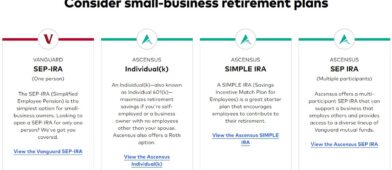When it comes to investing in individual companies, I’ve largely stuck to index funds. I’m not that into “stock picking.”
There was a time when I invested in a few dividend stocks back during the Great Recession. I saw a lot of great blue-chip companies, many dividend aristocrats, who were being knocked down because of the financial crisis. It was a dangerous time but I was comfortable picking a few companies considering my investing horizon of a few decades. It also served to scratch that itch in that part of my brain, but in a responsible way.
Many investors swear by it. They want the control of picking specific companies to invest in.
For those investors, there are plenty of tools out there to make your life a little bit easier. Back in the day, I remember fiddling around with Yahoo Finance’s clunky screeners to find companies that fit a few criteria (this post covers a few of those criteria for you dividend hunters out there). It was difficult to use and now there are a lot of far more sophisticated tools out there.
If you are the type who does enjoy picking your investments, you need an advantage, and here are my favorite tools:
Table of Contents
- Free Email Newsletters for Daily News Recaps
- Robinhood & Ally Invest for Stock Trading Platform
- StockRover for Analysis, Screeners, Portfolio Tools
- Morningstar for In-Depth Analysis
- Seeking Alpha for Stock Ratings and Market Commentary
- The Motley Fool Stock Advisor for Stock Picks & Research
- TipRanks for Aggregating Secondary Public Data
Free Email Newsletters for Daily News Recaps
When it comes to the news, you can go to your favorite news websites and scan the headlines or subscribe to email newsletters that will send you the top stories. I prefer to do both but if I have a busy day, it’s nice to get a quick refresh so I’m not out of the loop. If I have downtime during the day, maybe I load up my favorite sites.
My three favorite newsletters are The Hustle and Morning Brew. Both are free.
I enjoy The Hustle because it talks about business with a heavy emphasis on technology and startups. There is certainly a healthy dose of financial and public news but it goes deeper on technology, which is an area of emphasis for me. They also have a Sunday newsletter that goes on a deep dive into an esoteric subject that I usually find fascinating – the most recent one looked at the business of running vending machines.
I subscribe to Morning Brew for broader business and financial news. Since The Hustle is more tech-focused (which is a positive), Morning Brew can help round out the picture and fill in any gaps.
The best part is that if a news story is big enough, it is often covered in several (which is itself a strong signal).
Finally, I there’s always The Morning Briefing from the New York Times for general news. It’s not business-focused but it helps put everything else in context.
Robinhood & Ally Invest for Stock Trading Platform
I love Vanguard but if you’re going to buy individual stocks, Vanguard wouldn’t be my first choice. (if you want to invest in their low-cost funds, you’ll want a Vanguard account!)
I would go with Robinhood or Ally Invest. Both offer commission-free trades, which is key, and have good interfaces.
Robinhood will also give you a free share of stock when you sign up, valued anywhere from $2.50 to $200. You can refer your friends to Robinhood too, getting stock each time up to a maximum of $500 in stocks. As a trading platform, it’s become one of the more popular brokerages for people who trade stock because it lets you trade stocks, options, ETF, and even cryptocurrencies. If you want a margin account, you need to have at least $2,000 (regulatory minimum) but otherwise, there are no minimums (or fees). The only downside is that you can’t open a retirement account, like an IRA. (and Robinhood is safe)
Get a free share of stock from Robinhood
Otherwise, Ally Invest is my favorite brokerage because it also doesn’t charge you commissions, has no minimums, and has no account fees. From time to time, Ally Invest may also offer bonuses. The advantage of Ally Invest is that they also have additional research tools you can use. These aren’t as comprehensive as shops that specialize in research (as we’ll explain below) but it’s a good start. If you’re dabbling in options, Ally Invest has some powerful options tools available as well.
StockRover for Analysis, Screeners, Portfolio Tools
If you don’t want another person’s opinion clouding your judgment but you still want powerful tools that rival a Bloomberg terminal, StockRover has what you want.
I’m not going to lie but this tool is way more powerful than I can really tell you. I’m primarily an index fund investor with some individual dividend growth stocks, so many of the tools StockRover offers are far beyond what I can use. That said, I can see how it can help me pick better investments because it pulls in a ton of data into convenient views.
One tool I can use is their screeners – such as their Dividend Growth screener. You can tweak to your needs but out of the box it’s good (basically its 8% increase in dividends each year, payout ratio <40%, and a yield over 1.5% but less than 3.5%).
That’s just the screeners. On each company, the analysis itself is the most comprehensive I’ve seen. You will get all the numbers you expect but you also get an analysis of its performance against peers (industry), and the broader market on all of those same measures. You’ll get its earnings performance for the last 6 quarters, risk, seasonal performance (by quarter), and more. And this is all available on a single page so if you find a company that doesn’t look attractive, you could find a better option within that same industry within the report.
StockRover has a 14-day trial so if any of this sounds appealing, give it a look for yourself or read our review of Stock Rover for more.
Morningstar for In-Depth Analysis
Morningstar has long been known for its analyst reports, which are great for quickly learning about a company. In about 15 to 20 minutes, you’ll be up to speed on the company, the industry, and its place within it.
If you are interested in getting analyst reports about specific companies, Morningstar Investor is one of the best to consider. You’ll get an in-depth breakdown that you can’t get anywhere else (certainly not for free) and the best part about Morningstar’s analysis is that they will also give it within the context of the company’s current stock price.
Our review of Morningstar Investor goes into much greater detail as to what the service offers.
There’s a 7-day free trial plus you can get up to $50 off the subscription fee if you click below.

For a limited time, Morningstar Investor is discounted by $50!
It comes with a 7-day free trial so you can lock in your savings, try the service, and cancel if you don’t think it’s for you.
Get a 7-day trial plus up to $50 off Morningstar Investor
Seeking Alpha for Stock Ratings and Market Commentary
Seeking Alpha offers a variety of research tools, including stock ratings and in-depth analysis articles.
This service might be best-known for its enormous library of market commentary articles from independent contributors that can help you complete your due diligence for stocks and funds. The authors may present a bullish or bearish case and can provide information that you won’t see in brokerage analyst reports or a monthly publication with limited space.
You can also access several different rating tools:
- Quant Ratings: An exclusive rating system for a handful of factors like valuation, growth, profitability, and momentum.
- Author Ratings: See current and previous ratings from the Seeking Alpha article authors
- Wall Street Ratings: View the average bullish, bearish, or neutral consensus from the most prominent research firms with “sell-side analysts” that provide research reports for retail investors.
- Stock Ideas: See the leading investment ideas for many investing strategies
You can get limited access to the research articles and rating tools with a free Basic membership. But a Premium membership is necessary if you plan on performing in-depth analysis and want access to the Quant Ratings and stock screener features.
A Seeking Alpha membership is free for the first 14 days and then $29.99 per month. You can get a discounted monthly rate of $19.99 if you pay for an annual subscription ($239). Our full Seeking Alpha review has more.
💵 Seeking Alpha Premium Spring Sale – 25% Off

Seeking Alpha offers a 7-day free trial for Seeking Alpha Premium so you can see whether it’s right for you. If it is, the regular price is $239 for an entire year and now you can get 25% off – making it just $179 for the year.
If you don’t like it, you can always downgrade to the Basic plan and still use all the portfolios, screeners, and research you’ve done without paying the premium fee.
The trial is a great way to test-drive Seeking Alpha Premium.
👉 Get the Seeking Alpha Premium 7-Day Free Trial
(Offer expires April 3rd, 2024)
Learn more about Seeking Alpha
The Motley Fool Stock Advisor for Stock Picks & Research
My first few books on investing were from The Motley Fool so they’ve always held a special place in my heart. What I wouldn’t learn until much later is that a big piece of their business is these paid newsletters where they, among other things, give you stock picks.
The flagship newsletter is Stock Advisor and every month it gives you:
- Two new stock picks – along with their reasoning and research,
- 10 “Best Buys Now” – which are their recommended buys from among 300 stocks,
- Starter Stocks – onto which you can build the foundation for a strong portfolio,
- Access to their education materials.
If you want to get into stock picking, The Motley Fool has a wealth of information to help you make the right choices as well as learn how to find new ones. The advantage of this is that you get their picks, which is the culmination of all their research and analysis. If you want to pick your own stocks and are looking for ideas, Stock Advisor is a way to get those ideas piped into your inbox every month.
Learn more about Stock Advisor
TipRanks for Aggregating Secondary Public Data
I recently discovered a service called TipRanks that pulls together a bunch of data from publicly available resources. We have a review of TipRanks that goes into greater detail on this freemium service.
But what fascinated me the most about this, besides the analyst rating consensus data (available for free) but that they also pull together insider trading, “crowd wisdom” from various portfolios, and even website traffic. Much of this data is publicly available but it’s not often pulled into one place.
Worth a look if you haven’t heard of them before.
I think that about covers it – each of these tools fulfills a specific function in a stock picker’s arsenal.
If I’ve missed something, please let me know!



